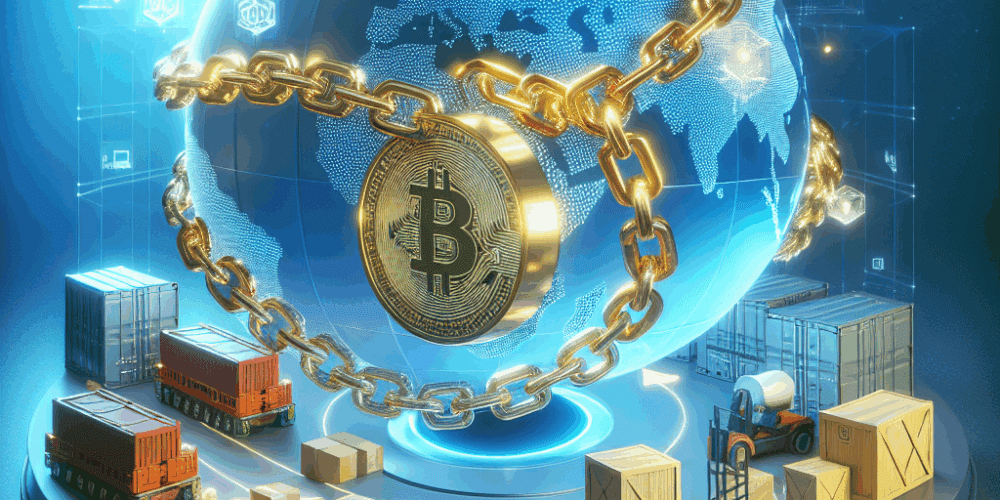In an unprecedented development that is poised to alter the landscape of global logistics, a new blockchain protocol has been successfully implemented across several international supply chains. This groundbreaking shift not only enhances transparency but also significantly boosts efficiency and security in trade practices.
Released earlier this week, the new blockchain-based system, known as “ChainClear,” aims to address long-standing challenges in the supply chain sector, such as counterfeiting, theft, and unnecessary delays. ChainClear integrates cutting-edge cryptographic techniques with an intuitive user interface, allowing companies to track the journey of a product from manufacturer to consumer in real time.
Harnessing Blockchain for Enhanced Transparency and Security
The key feature of ChainClear is its ability to provide a tamper-proof record of every transaction within the supply chain. This is achieved through blockchain’s decentralized ledger system, which records data across multiple nodes, ensuring no single point of failure can corrupt or alter the historical data.
This launch comes in response to increasing demand for transparency from consumers and regulators alike. In recent years, several high-profile incidents involving contaminated goods and counterfeit products have led to a public outcry for more stringent controls and visibility into the origins of consumer goods.
The Economic Impact of Blockchain in Logistics
Experts predict that the widespread adoption of blockchain technology could save the global logistics industry billions annually by reducing lost goods, minimizing theft, and cutting down on delays due to paperwork discrepancies. A recent report by the Global Blockchain Logistics Council estimates that ChainClear could reduce operational costs by up to 30% for companies that implement the technology by 2025.
Moreover, the environmental impact of this new system could be substantial. By optimizing routes and reducing administrative overhead, blockchain could help decrease the carbon footprint of the shipping and logistics sector.
International Adoption and Future Prospects
Several multinational corporations have already begun integrating ChainClear into their operations. Among them are tech giants and leading consumer goods companies, which see the technology as a critical step towards future-proofing their supply chains against fraud and logistical mishaps.
Additionally, governments are taking note. The European Union has already proposed legislation that would encourage blockchain adoption in critical sectors, including pharmaceuticals, electronics, and food and beverages. This legislative push, combined with the industry’s clear signal towards blockchain acceptance, suggests that ChainClear might be the first of many similar systems to transform how global trade is conducted.
Challenges and Considerations
Despite the enthusiasm surrounding ChainClear’s launch, there are challenges to its widespread adoption. First, the initial set-up cost and the need for technical expertise can be significant barriers for smaller companies. There is also the issue of interoperability, with many industries and nations still operating on older, incompatible systems. Ensuring universal standards and protocols is crucial for the broader adoption of blockchain in logistics.
Furthermore, while blockchain can greatly increase transparency, it also raises questions about privacy and data security. Companies must navigate these concerns carefully, balancing the need for transparency with the protection of sensitive corporate and consumer data.
Final Thoughts
As the global economy becomes increasingly digitized, solutions like ChainClear offer a promising glimpse into the future of trade and commerce. By leveraging the inherent security and transparency of blockchain technology, the logistics industry can anticipate not just improved efficiency but also enhanced trust and collaboration across borders.
This implementation of blockchain stands as a landmark achievement aimed at modernizing global supply chains and setting new standards for transparency and efficiency. As other sectors observe the benefits realized in logistics, similar blockchain innovations are likely to follow, potentially transforming industries worldwide in profound ways.




